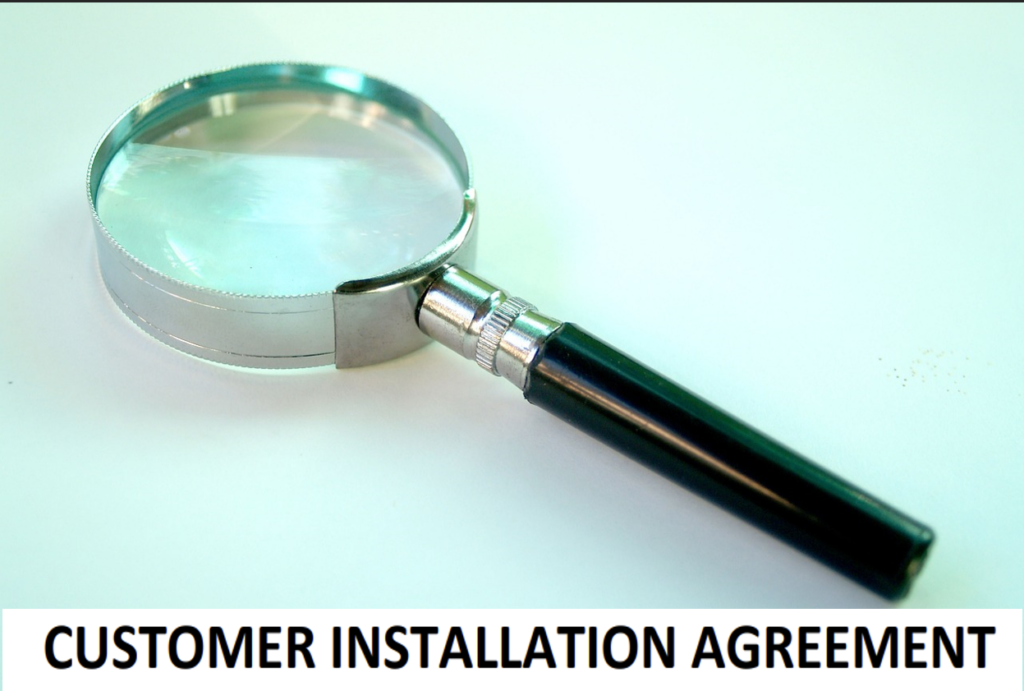For Consumers & Homeowners

I support solar energy. Which means mixed feelings about writing this post. On the one hand, there is a real need for consumer protection in this area to ensure that companies aren’t taking advantage of the people to whom they sell their panels. On the other, I don’t want to give fodder to any knee-jerk political reaction. (If that’s you, please move on.)
While I hesitate for that reason, this is an area with which people who have not been through the process themselves (or tried to) are likely unaware. And, realistically, individuals or entities are not automatically transformed into saints by entry into the renewable energy arena. Nor do they become immune from issues that could plague any industry absent adequate oversight.
Further, solar companies capitalize on the solar tax credits available to consumers as part of their business model (at least in my experience spending months finding one whose contract I could sign). That’s not unique to the solar industry — we have long had subsidies and tax breaks for fossil fuels.[1] And, not something I’m criticizing here. Recognizing that it’s not something we’ve demanded of other businesses though, I still feel that there is an implicit obligation, at least morally, for companies who make incentives intended to benefit the public so central to their business model. Specifically, they ought to act in return with a public conscience and high levels of fairness towards their customers. This is particularly true where some of those consumers may well be motivated not only by cost savings, but a desire to be socially responsible through renewable energy.
Too often, what I saw was solar companies offering one-sided adhesion contracts with terms too oppressive for me to be willing to sign, much less want to recommend to a neighbor a company with such terms. And, I really wanted to be able to recommend them. As much as I value clean (and the idea is, less expensive) energy, though, I also like to sleep well at night. Which meant, mainly, I did not want to take on potential liability the company really should shoulder and have insurance for. (See below).
These are the top three terms that would (and did) give me pause in solar contracts:
- Broad Indemnity Clauses – These are parts of an agreement saying, essentially, that if the company does something wrong, you will be on the hook for making it right instead of them. In what I saw, this included even for injury to third parties caused by the solar company’s own errors. (Which, given that these panels are meant to stay on your house for more than 20 years or so, could, in theory, arise years down the road, perhaps even after you have sold that home and moved on.)
- One-sided fee shifting and/or arbitration provisions – Terms might say, for example, that if a dispute arises, you can only arbitrate and have no right to go to court, but the company can sue you in court. Similarly, they may provide that the company can obtain its attorneys’ fees from you if it prevails but give you no reciprocal right if you win.
- Obligation to file disputes in distant forums – Contracts may have what’s called a “forum selection” or “venue” clause. Through these terms, you agree that if you find yourselves in a formal dispute, that dispute will be filed in a certain place. Or, you consent to someone else filing in a particular location. That place could be the location of the company’s home office. That, in turn, could mean that you agree to file or defend a suit thousands of miles from where you live, in a place where you know no one (including an attorney to potentially represent you), and may be unfamiliar with the court system.
Now, this is not to suggest that all of these terms would necessarily be enforceable were a dispute to arise. The combination of terms, however, makes them particularly concerning. If, for example, you are going to challenge the validity of an indemnity clause, are you willing to risk the one-sided fees and can you do that in a convenient forum? Even if you can, did you sign up for the solar panels with the expectation that you would not need to have significant resources?
It took me eleven months to find an agreement I could sign. That was just on principle. But I also wound up glad I held out from a practical standpoint too — because of what happened next. (Stay tuned as to why I almost had a new experience representing myself in arbitration. To be vaguely discussed in subsequent post.)
These terms are especially troubling because the solar companies typically market the panels as a no-up-front-cost and no-expertise-needed investment. As such, they promise to handle the permitting and approval process. Those I encountered also offer to quote prices with no up-front payment. Instead, you make a monthly payment on a solar loan and ultimately receive a tax credit. People are therefore entering from a position of trust, assuming that experts are handling issues that might otherwise be intimidating and complicated, as well as without the expectation of significant financial issues.
Finally, separate, but equally concerning, are solar loan fees. These in my experience were shockingly high. The interest rates weren’t the part that raised my eyebrows. Rather, the loan fees seemed exorbitant. I recall being quoted as much as $6,000, or almost a third of system cost, above and beyond the up-front price offered – simply to take out a loan (and then still pay interest on that loan). I’m working from memory here. So, I may be off. But it was startingly high.
By way of comparison, googling home closing costs suggests that if you figure an average of 2-6% and take the low end of 2%, you would need to borrow $300,000 (multiples more than the cost of a solar system), to reach $6,000 in such costs. And, many of those costs would go towards identifiable work, like appraisals, title search, attorneys’ fees, and brokers’ commissions.[2]
Why would solar loan fees be so high? As far as I could tell, it lacked any logic, especially given that companies calculate proposals against the backdrop of utility payments that have been within the person’s budget to pay before they installed the system. Additionally, it seems they expect people to be more financially than environmentally motivated, such that they present the overall package as worthwhile if it makes financial sense for the household. Accordingly, they would not seem to have any reason to expect an unusually high risk with respect to repayment.
Not only would it be hard to feel responsible recommending a solar loan offering like that to someone, it begs the question – are these fees essentially offsetting a substantial portion of tax credits being offered to make solar more affordable and available? Credits that were intended, ultimately, to put more money back into consumers’ pockets? And which would be especially beneficial in a time of inflation?
These issues are shared in hopes that some will change. For homeowners and families, solar has the potential of reduced dependence on fossil fuels, insulation with respect to energy costs, and even providing energy back to the grid. We ought to have fair terms in line with the purpose of public policy promoting solar to help achieve them.
[1] See, e.g., Why fossil fuel subsidies are so hard to kill (nature.com)
[2] How Much Are Closing Costs? | Real Estate | U.S. News (usnews.com)
